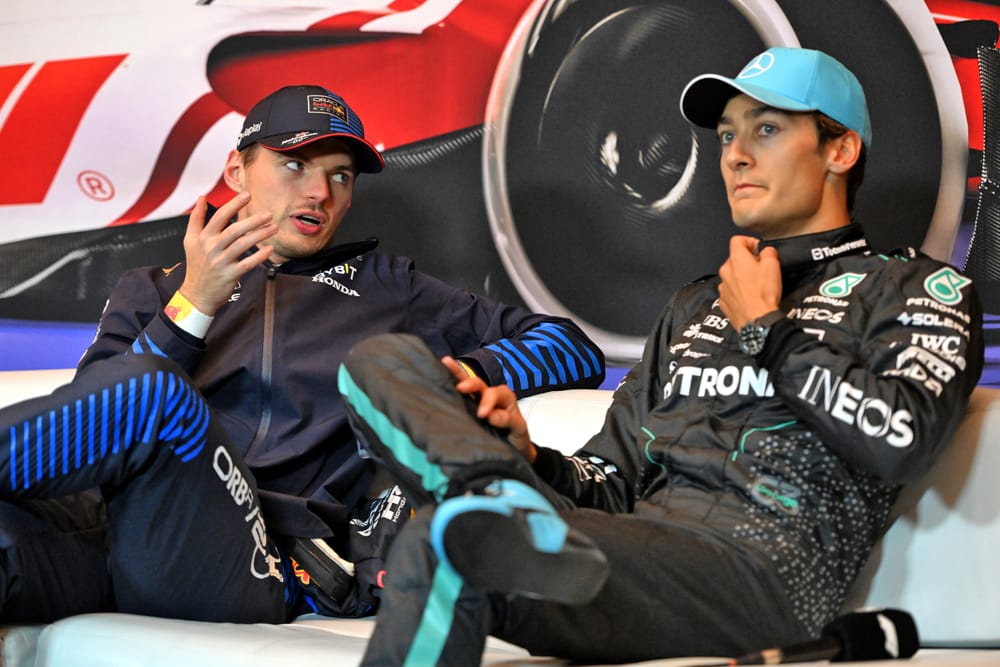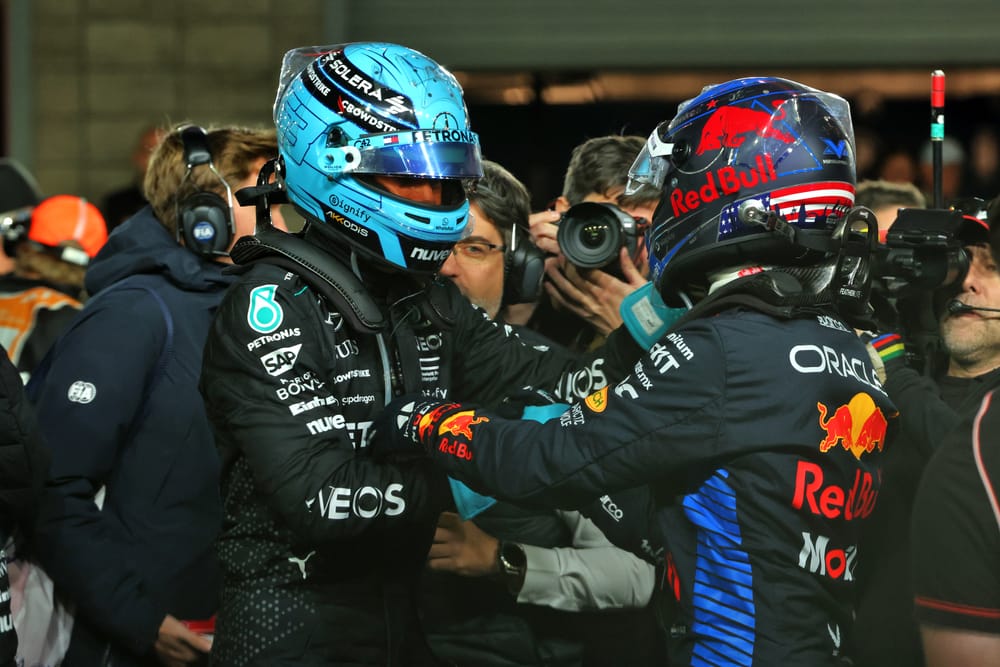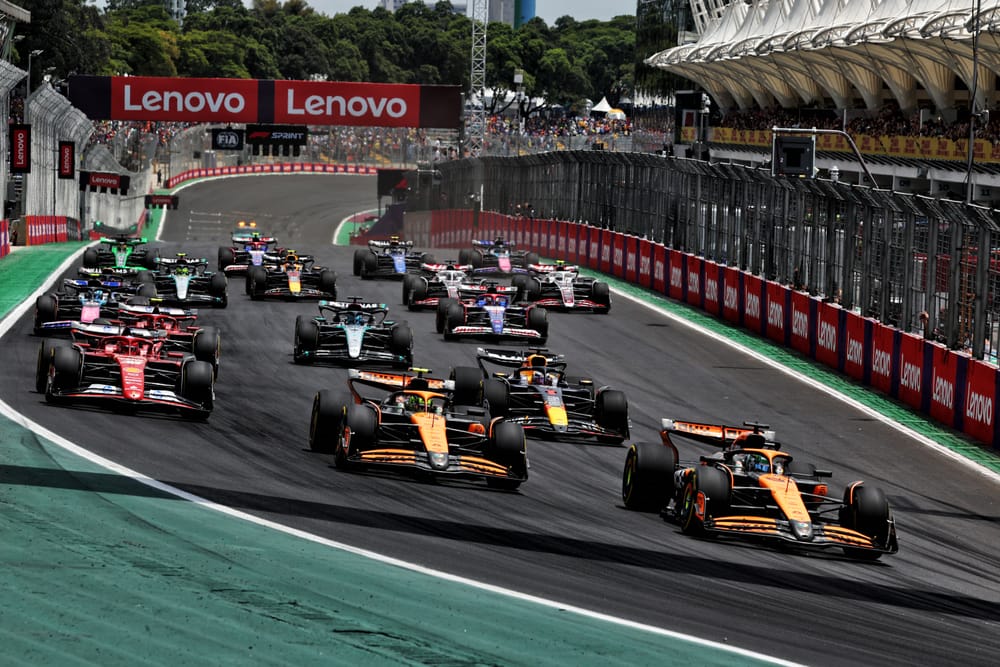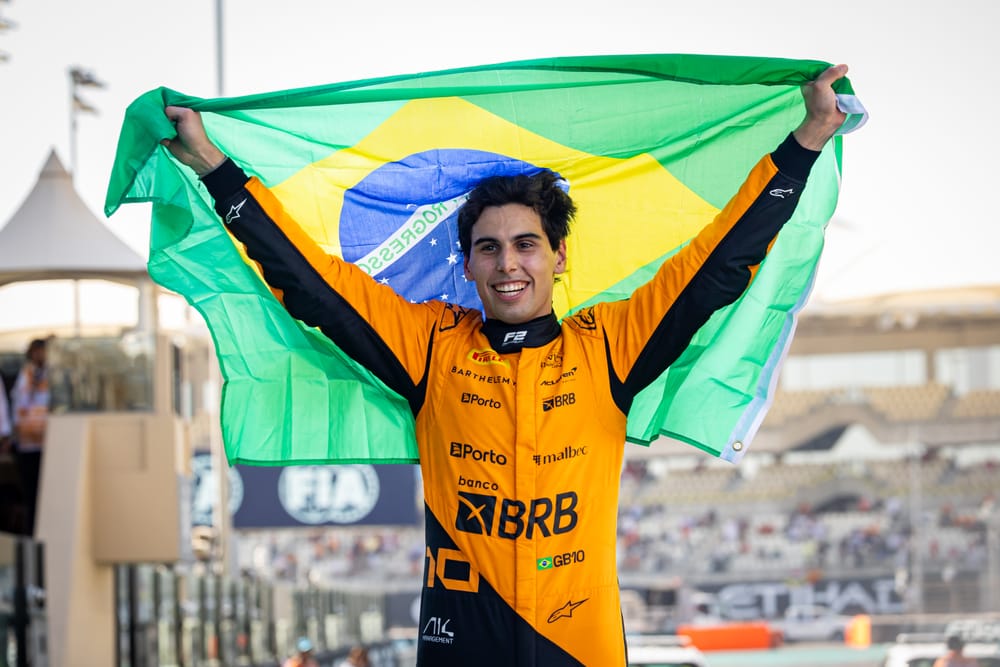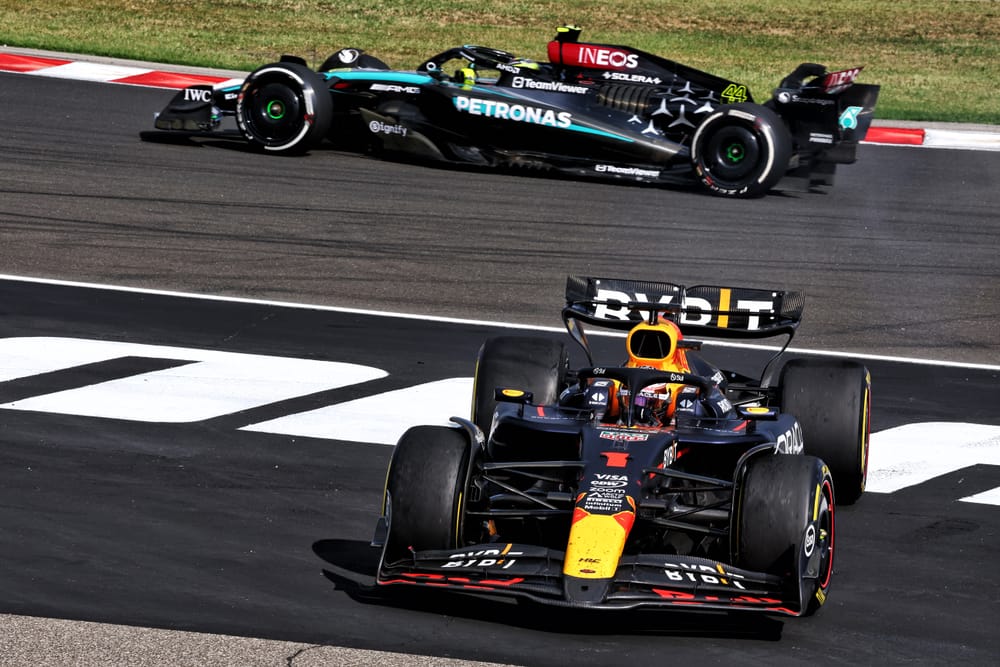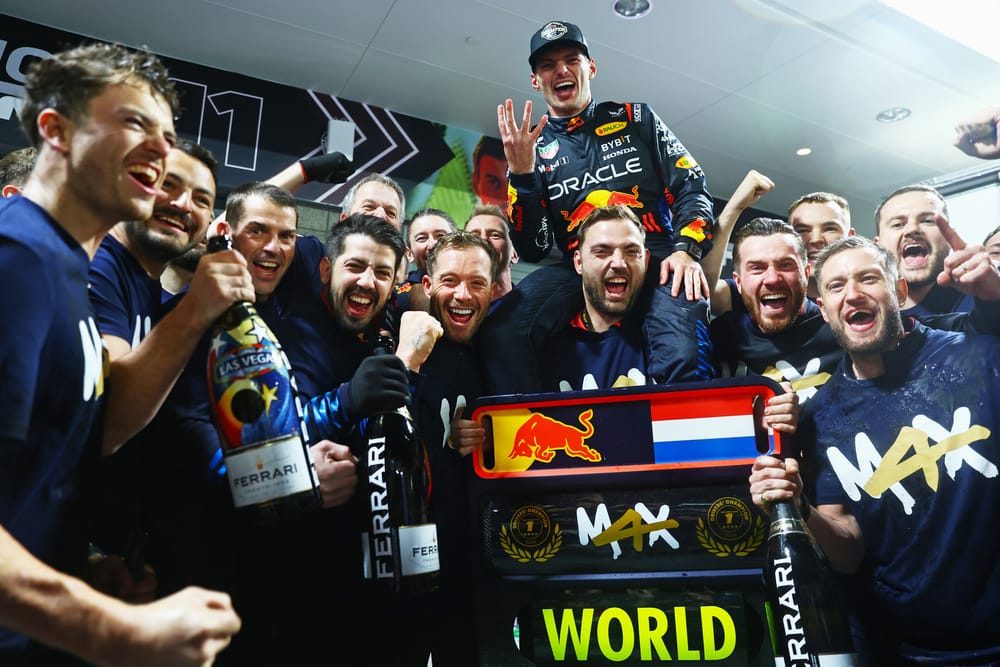Up Next

In such a packed 24-race Formula 1 calendar picking out one standout memory can be difficult.
But we've set our team that challenge of picking out a single memory or storyline that stood out to them most and asked them to explain a bit more about how they covered that story.
Hamilton to Ferrari
Scott Mitchell-Malm
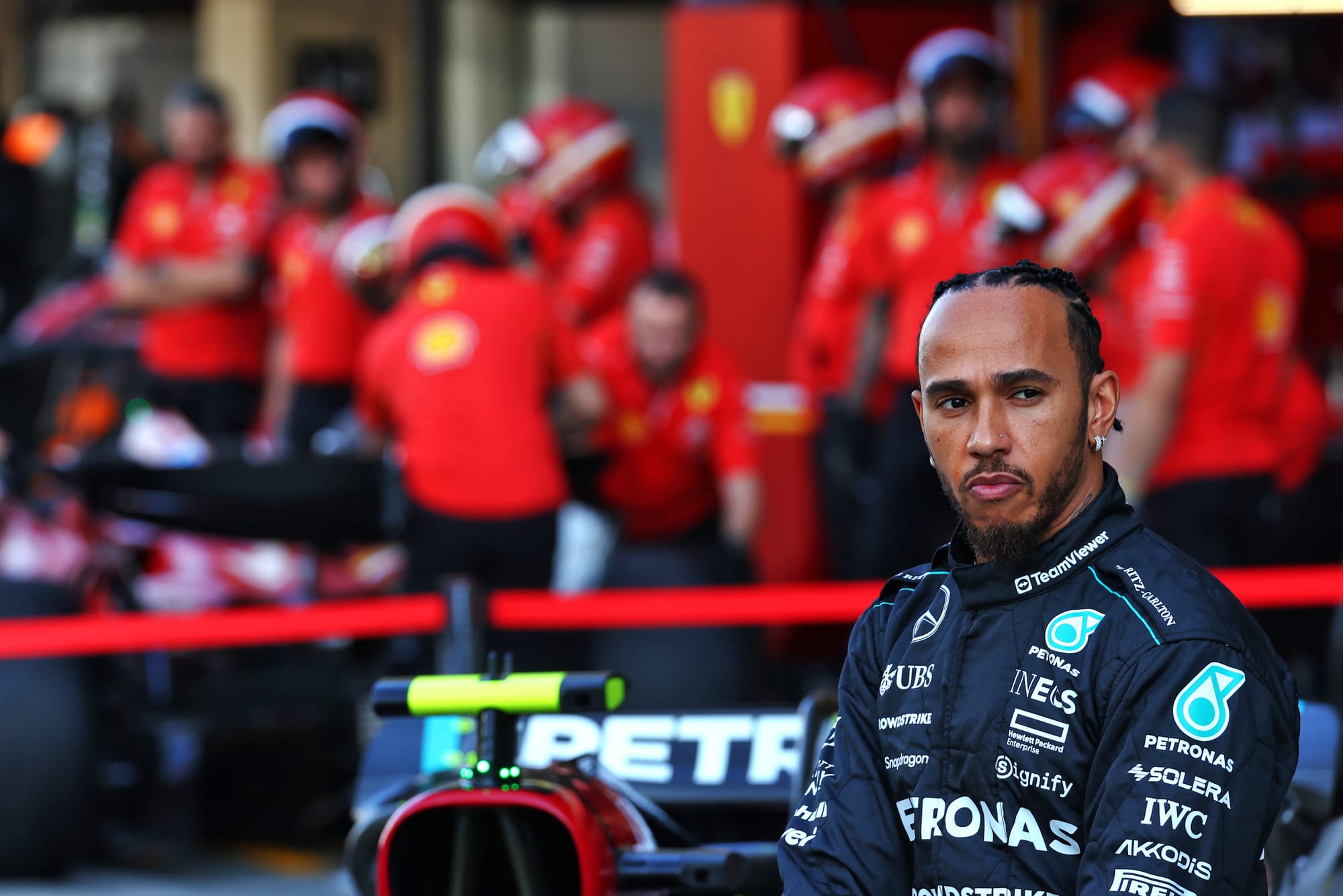
It didn't seem real, just the routine 'Hamilton to Ferrari' gossip. Part of the job is filtering through noise and speculation. Annoyingly, that part is taking up an increasing amount of time, and leaves you feeling a little more cynical of speculative reporting than before.
We'd also only had a fresh round of 'Hamilton to Ferrari' gossip a couple of months before, in Abu Dhabi. Monaco before that. But you have to take it somewhat seriously and look at the source, how concrete does it sound, is it just a total flier, what have other people heard, and so on.
Very quickly, this stopped being routine gossip. It stopped being speculation. This was real. And it wasn't just possible. It was done - it was happening. Hamilton to Ferrari. The day passed in a blur as we worked through a lot of content around it, but I remember so vividly sitting down at the end of that day to record our podcast and thinking: it's Hamilton to Ferrari.
Beyond the 'biggest driver joins biggest' team element, or even the 'nobody saw this coming' element, a borderline comedic 'ha, it's actually happened...' element was my dominant feeling.
This was one of those stories that lived the same life over and over again: it emerged from the woodwork, got a lot of people excited, was dismissed by all the parties involved, and disappeared just as quickly as it took over the news agenda in the first place.
These stories almost never turn out to be real. Eventually it did. It may have predated F1 2024 officially but it was a massive day and, of course, became a major subplot of the season itself.
Russell vs Verstappen
Edd Straw
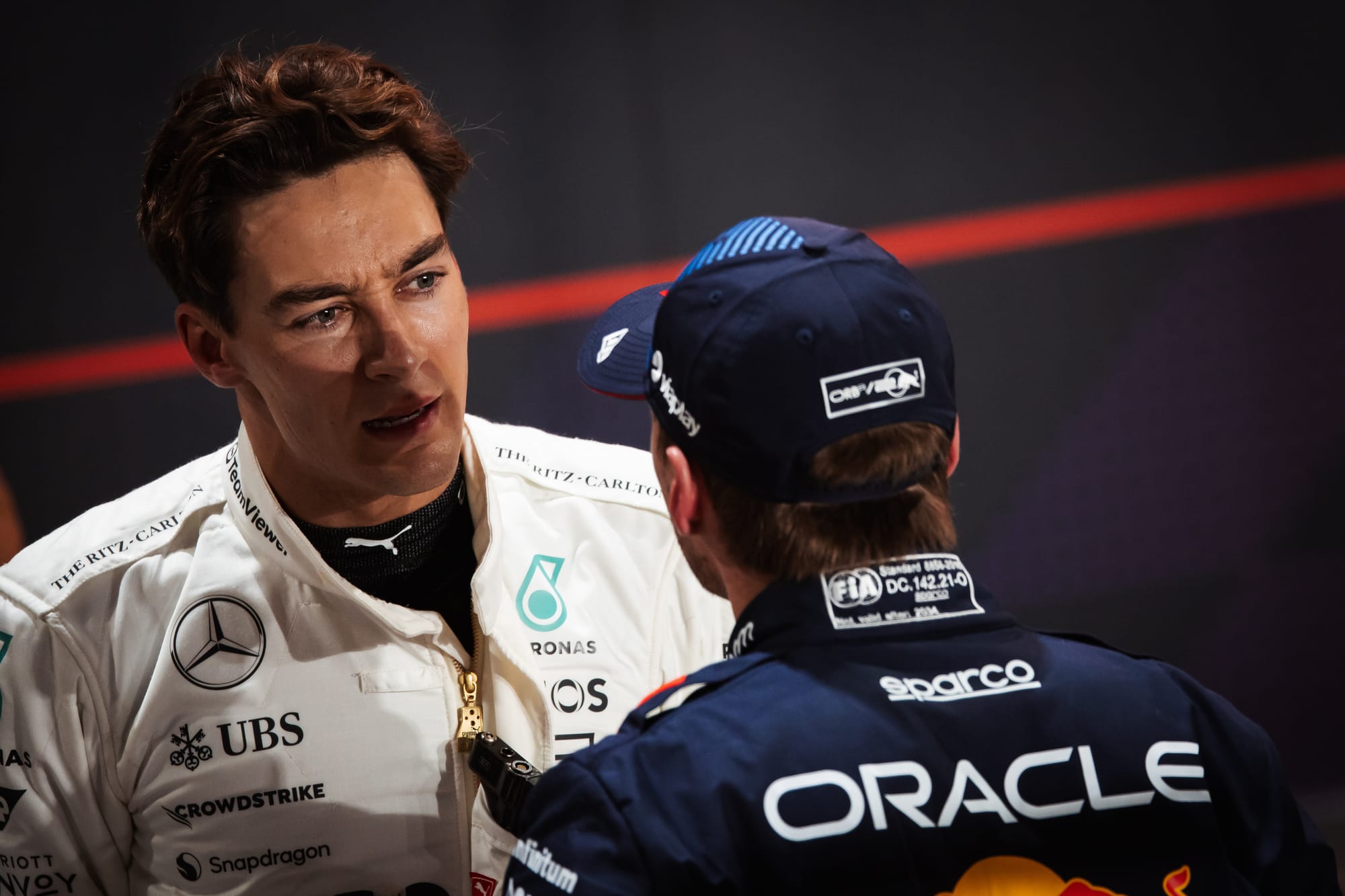
On Thursday afternoon in Abu Dhabi ahead of the final race of the season, I was among a group of six journalists who sat down with George Russell on the terrace of the Mercedes hospitality building overlooking Yas Marina for an interview.
What was expected to be an interesting, but run-of-the-mill, end-of-season interview proved to be anything but.
A few minutes in, the question of Max Verstappen's criticisms of Russell's behaviour during and after qualifying for the Qatar Grand Prix was raised. Russell immediately triggered one of the big driver rows of the season.
This was more pointed and focused than the usual overblown row between drivers. Russell was genuinely incensed by Verstappen's criticisms, but more importantly was very clearly laying down a marker for a rival he believes he can have the beating of.
It was so memorable given how clear it was that this was a strategic move from Russell. It wasn't about him being forced into tackling the topic, he absolutely wanted to and did so eloquently, precisely and calmly.
Immediately after the interview, I notified my colleagues on the desk at base for The Race that this story was a top priority, meaning we were among the small group of outlets that revealed Russell's ire before it became the sole topic of discussion in his open media call later that day - one of the best attended of the year. Even Toto Wolff turned up, standing conspicuously to the side and clearly very happy for the unusual step of questions being fired at him during what was a driver press conference.
Verstappen refused to rise to what he will have seen as the bait, but it's hard to imagine there won't be further flashpoints. That's what elevated this above the level of another tiresome round of driver tit-for-tat - as well as being a refreshing reminder that in an era where F1 is desperate to present its star drivers in as inoffensive and anodyne a way as possible that the intense rivalry that can boil over into animosity is still there.
I was wrong about Haas
Ben Anderson
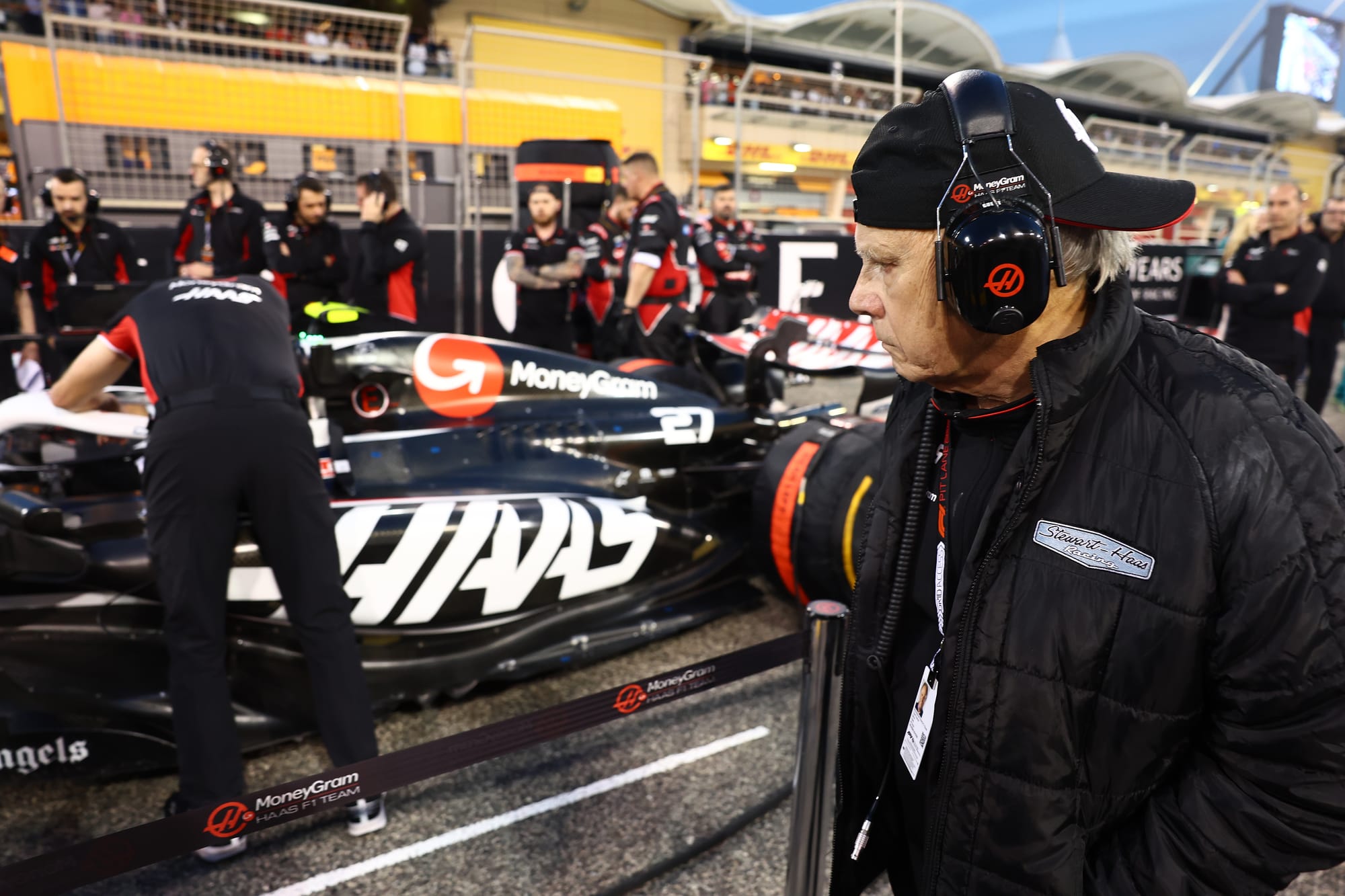
Coming into 2024, amid the turmoil of Guenther Steiner leaving the team, Gene Haas seemingly uninterested in funding his outfit properly, and what looked like an awful baseline for a car after that misfiring Austin 2023 upgrade, I genuinely thought Haas would be a lost cause when it came to making our pre-season predictions.
A team of Haas's size should by rights be finishing last in the championship anyway - by its very nature it punches above its weight - and with so many other teams investing heavily in their futures, from Aston's state of the art factory to Williams's overhaul of Grove or Audi's investment in Sauber, I just couldn't see how Haas would compete starting so far on the back foot.
But new team boss Ayao Komatsu played a masterful game of expectation management and got that team firing on all cylinders again. The baseline car was surprisingly good, but even more impressive was how the team stayed in the fight for sixth in the constructors' championship all the way through the season.
Nico Hulkenberg qualifying fourth in Abu Dhabi (before his penalty) was perhaps the clearest evidence Haas has finally figured out how to make its F1 car faster through a season, rather than regressing and trying to cling on from wherever it begins the year.
Better communication between the disparate parts of the organisation has frequently been cited as the main driver of this remarkable turnaround. And with Toyota coming on board as technical partner, the future for this team looks perhaps brighter than ever under Komatsu's stewardship.
As Hulkenberg said, Haas had to "eat a lot of s***" to get here. And I'm happy to admit I got this one totally wrong!
A star stand-in
Samarth Kanal
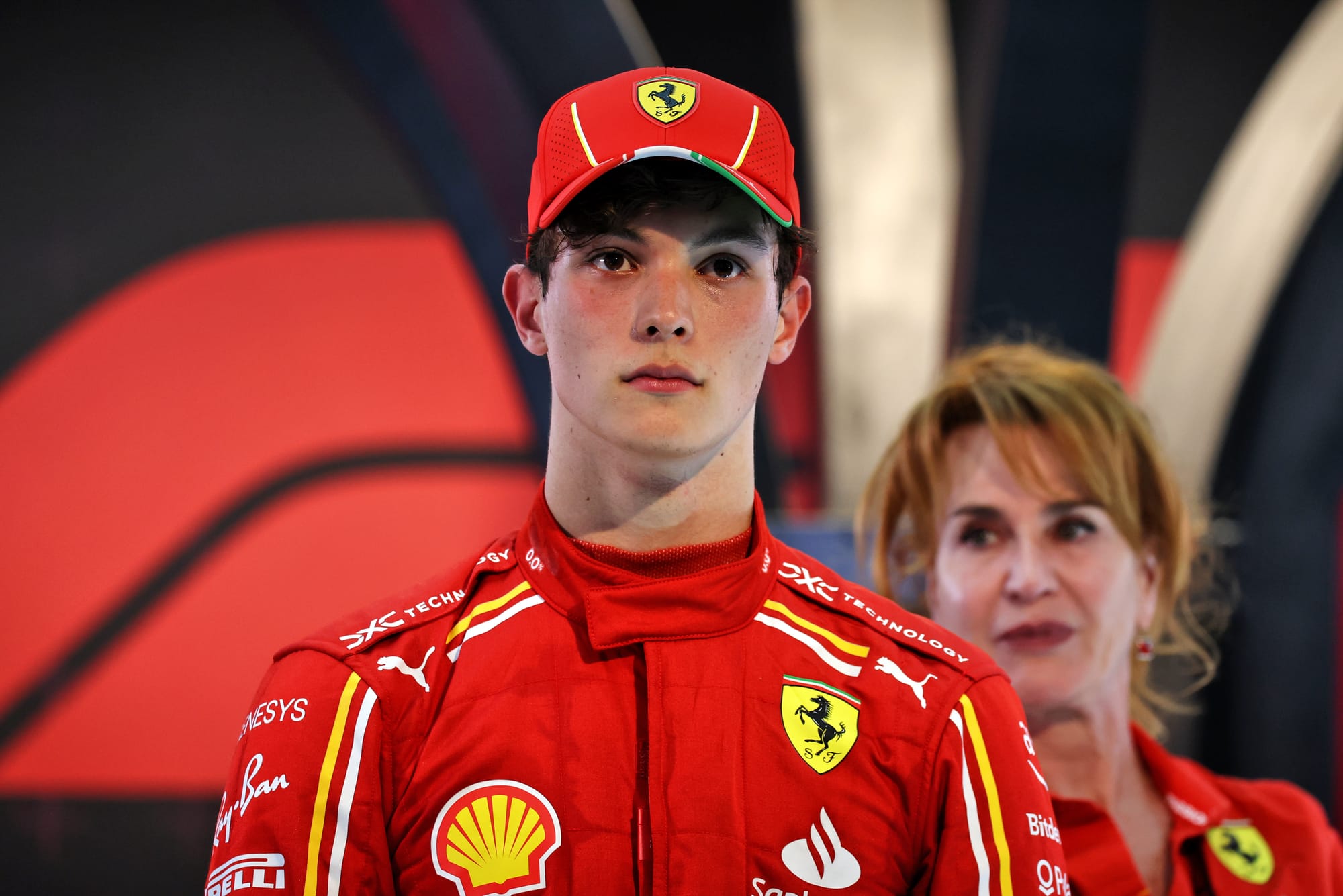
I didn't know much about Ollie Bearman until the second race of the 2024 F1 season. He seemed to be a rated driver but a slightly anonymous teenager - shielded by the Ferrari junior machine - who was working out the intricacies of Formula 2.
That changed quickly with his cameo at the 2024 Saudi Arabian GP, and the rest of the season underlined just how solid an athlete Bearman really is.
After Carlos Sainz's appendicitis diagnosis, Bearman was called up to Ferrari and called out of his Prema-run F2 car (in which he had just secured pole position). He was about to become the youngest Ferrari grand prix driver ever on a very unforgiving circuit.
No surprise, then, that his Pirellis were grazing the barriers throughout FP3 and qualifying. It was impressive that he lapped almost 14 seconds faster than he had done in F2 to qualify 11th for the grand prix, even more so that he finished seventh on Saturday night. Azerbaijan was very good too. Brazil not so much, but mistakes happen.
In the face of media scrums (think a horde of journalists shouting over each other for a puffy quote), Bearman was genuinely honest and open.
I spoke to Bearman a few times over 2024 and it was clear he was sticking it out in F2 to learn as much as possible, and give Prema something back for its support.
That humility and drive will serve him extremely well when he makes his full-time debut for Haas in 2025, and beyond.
When Red Bull was 'found out'
Josh Suttill
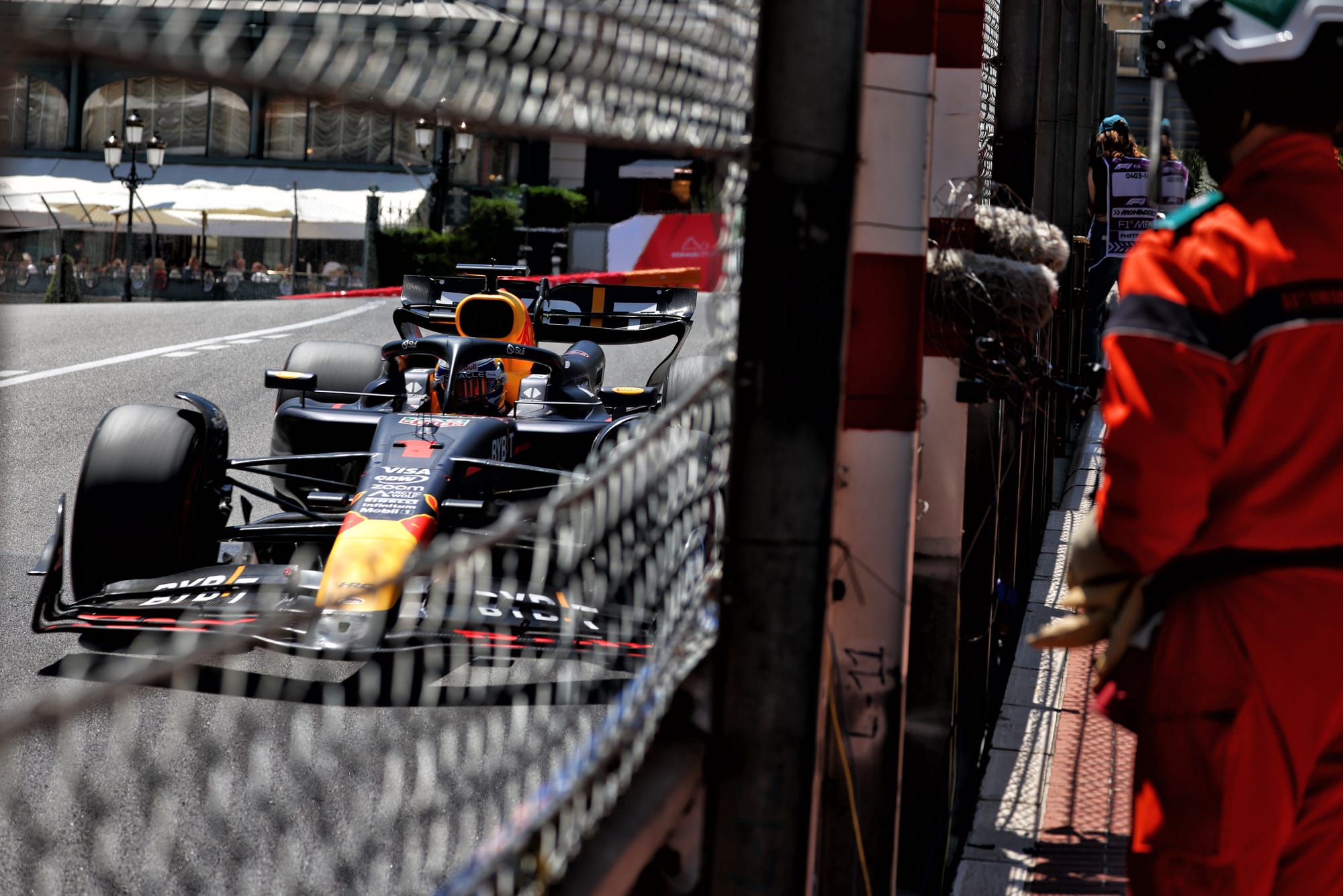
I was lucky enough to cover the Monaco Grand Prix for the first time in May and my standout memory was all about Max Verstappen.
Monaco was the first properly bad weekend for Red Bull and Verstappen. They'd been beaten by Lando Norris in Miami but that was somewhat unfortunate due to the safety car timing rather than a complete lack of pace in the RB20.
In Monaco, the RB20 was simply not quick enough. It was the fourth-fastest car and gave both of its drivers major headaches.
That didn't stop Verstappen from pushing with all his might. I'd gone trackside with Mark Hughes for third practice and even then you could see Verstappen giving it everything to extract something from a Red Bull that climbed and clunked its way over the kerbs - a clear contrast with Charles Leclerc, who was able to progressively push his Ferrari, glide across the kerbs and extract the laptime with relative ease.
After qualifying sixth, Verstappen faced the press in the media pen. There's a slightly weird quirk where you're interviewing the drivers eliminated in Q1 while Q2 is on in the background and so too, you're interviewing drivers eliminated in Q2 while the pole position shootout is happening.
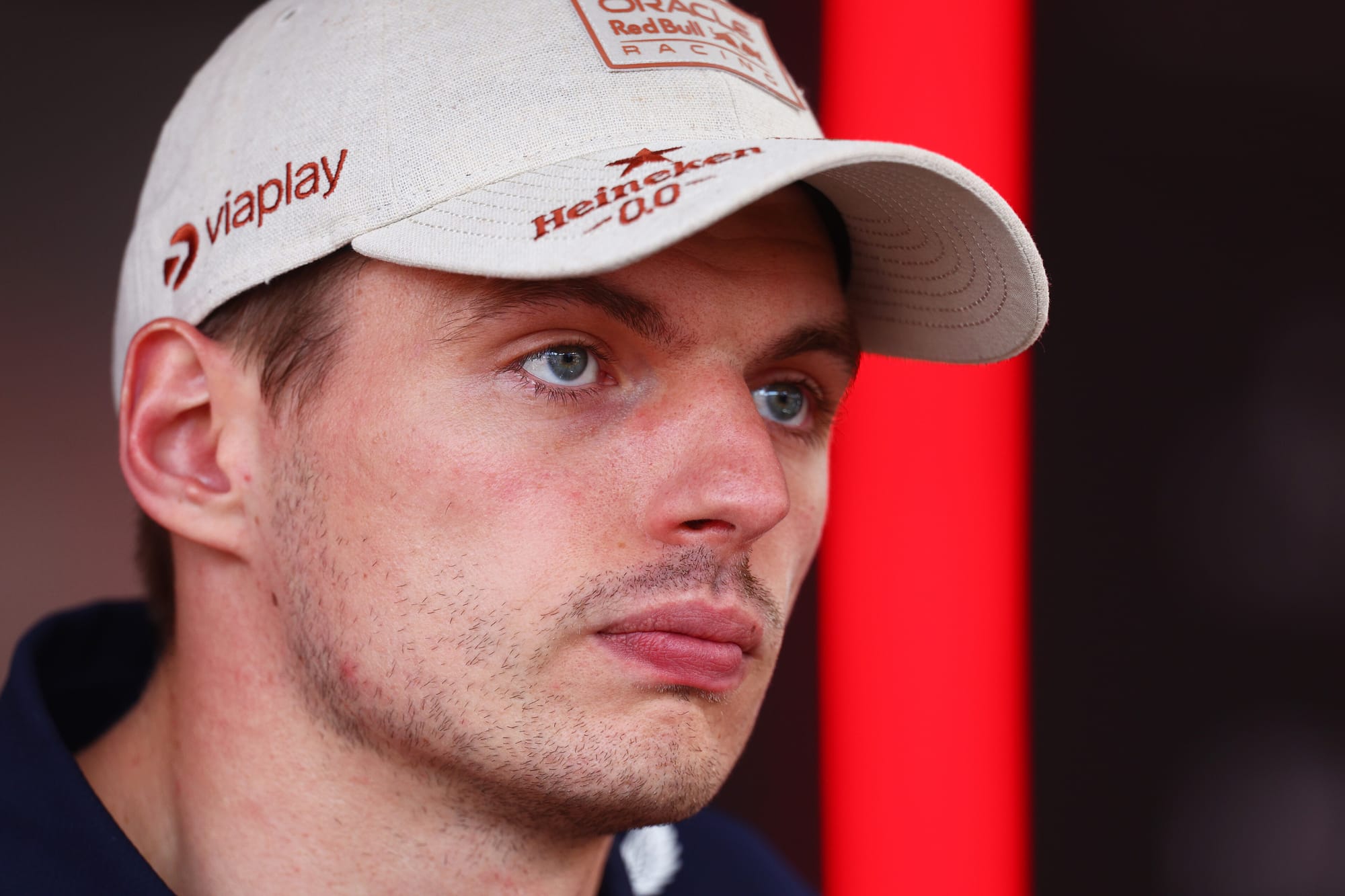
It means it's easy to miss what's actually happened in the session that you're about to quiz a driver on. It sometimes means relying on The Race Live Hub or messages from colleagues to know what's actually happened.
By the time Verstappen joined us there was a crunch - and I mean crunch given it's 20-30 journalists all leaning in with their recording method of choice - of media all gathered in anticipation of the world champion's debrief.
Verstappen said Red Bull had been found out now that its car advantage had gone. I'd always known Verstappen was direct and straight-talking, answering every question with proper thought, but what I hadn't appreciated was his willingness to talk so extensively even on the worst day of his season up until that point.
He stood there for eight minutes answering a range of mostly negative questions (understandable given his qualifying performance) and only left when there weren't any more. He did the same on Sunday, having made zero progress from sixth on the grid.
It would have been easy to walk away after a couple of questions - credit to Red Bull for allowing him to speak too - and it feels like it's that kind of honestly and directness that would have made Verstappen a key asset behind the scenes in Red Bull's recovery. Clear, direct, but always making his points with respect.


